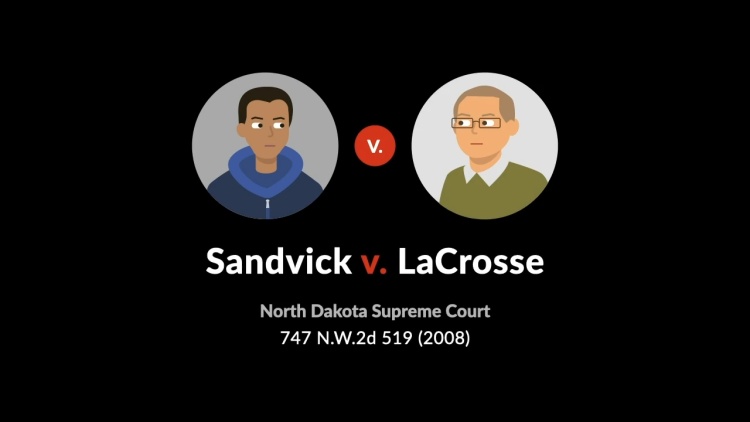Sandvick v. LaCrosse
Supreme Court of North Dakota
747 N.W.2d 519 (2008)

- Written by Sara Rhee, JD
Facts
In May 1996, Sandvick (plaintiff), Bragg (plaintiff), LaCrosse (defendant), and Haughton (defendant) jointly purchased three oil and gas leases (the Horn leases) for the purpose of selling them for profit during their five-year terms. Empire Oil Company (Empire Oil), which was owned by LaCrosse, held title to the Horn leases. The purchase was made using credits that each of the parties had in Empire Oil’s checking account. The Horn leases had no provisions for extensions or renewals. In November 2000, six months before the expiration of the Horn leases, Haughton and LaCrosse purchased three five-year oil and gas leases (the Horn top leases) that were, in effect, extensions of the Horn leases. The terms of the Horn leases and the Horn top leases were identical, except that Sandvick and Bragg were not parties to the Horn top leases. Sandvick and Bragg were not informed of Haughton and LaCrosse’s acquisition. Sandvick and Bragg brought suit against LaCrosse and Haughton, alleging that they breached their fiduciary duties by failing to offer Sandvick and Bragg the chance to participate in the purchase of the Horn top leases. The district court ruled that neither a partnership nor a joint venture existed with respect to the Horn leases and that, therefore, no fiduciary duty was owed.
Rule of Law
Issue
Holding and Reasoning ()
Dissent
What to do next…
Here's why 907,000 law students have relied on our case briefs:
- Written by law professors and practitioners, not other law students. 47,100 briefs, keyed to 996 casebooks. Top-notch customer support.
- The right amount of information, includes the facts, issues, rule of law, holding and reasoning, and any concurrences and dissents.
- Access in your classes, works on your mobile and tablet. Massive library of related video lessons and high quality multiple-choice questions.
- Easy to use, uniform format for every case brief. Written in plain English, not in legalese. Our briefs summarize and simplify; they don’t just repeat the court’s language.





